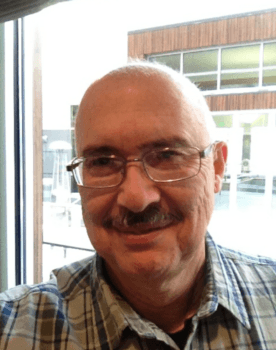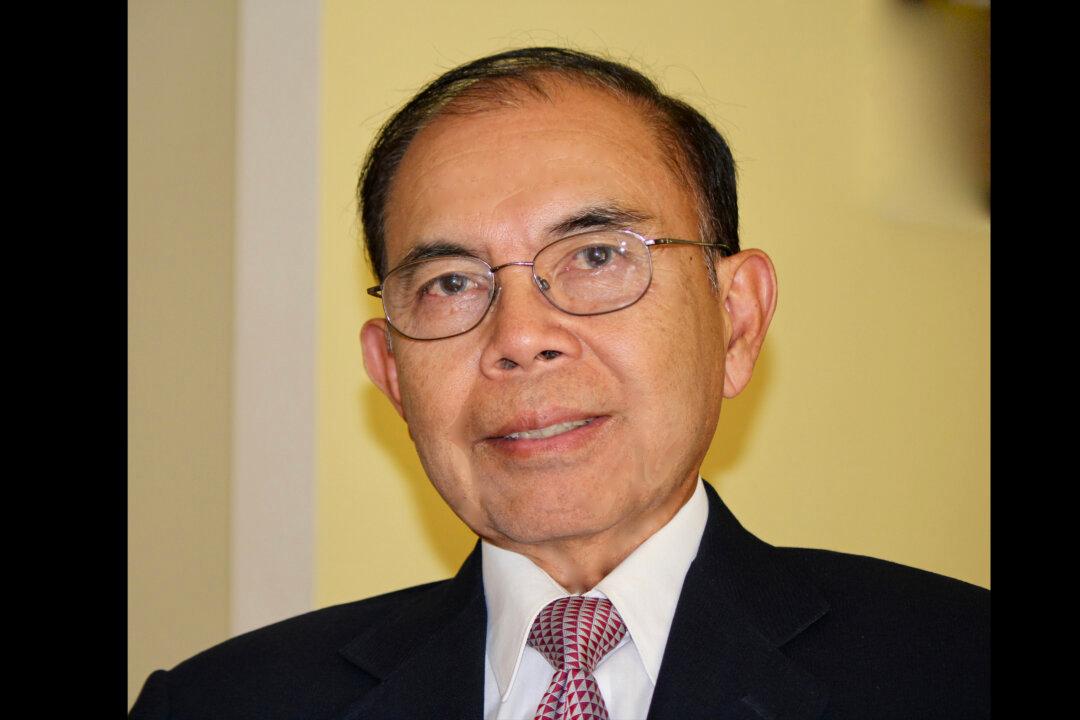“I think I know,” Dr. Diokno thought. “It is by evolution or by Creation, which is a discussion that has been going on.”
But when he started reading the article, “I could not stop until the end.”
Dr. Diokno, 80, has had a long and well-respected career in urology. He held several university faculty positions, served as president of a number of organizations including the Michigan Urological Society, edited the International Journal of Urology and Nephrology, published more than 250 journal articles, and is the recipient of numerous awards. He retired from clinical practice in the past few years, and he continues to do research, consulting, and mentoring. On Sundays, he joins a large group of medical doctors on Zoom for prayer, after which there is time for open discussion. For their next session, Dr. Diokno wanted to bring up the article to the group.
The Bottom Line
“I recognize that it is similar to the Roman Catholic doctrine. There are some differences, but the bottom line is the belief that there is a Creator, that there is an afterlife,” he said. “I am in agreement with the concept that there is a Creator, that there is a concept of heaven, and that there is the concept of you have to do good in order to be accepted into heaven.”“The more I read it, the more I said this is exactly what I have been thinking, what I am following, and this is exactly what I plan to do for the rest of my life,” Dr. Diokno said.
“The point is, if you have to really believe in all of those, you have to have faith. There is no sense in believing all of those if you are just saying it, because no one has ever really seen heaven or been there, except in discussions in the scriptures, and even the author of this paper said he had some secret messages he had been sent by the divine beings, which, all of this, is believed by his followers as true,” Dr. Diokno said. The bottom line, he added, is that one must have faith, otherwise the world and our interactions with it, our reality becomes chaotic.
“The part that resonated with me is that we are not just physical bodies; in each of us is a soul, and the soul will ultimately live, depending on where you go is how you perform in your physical life. I think if people read this and believe this, we hope that the world will be in a better order,” he said. “To me, what resonated was this message that we need to do good in this world.”
“I think that is what the world needs,” he said, “because as this [article] says, we are getting to the point of destruction.”
You only have to look around and turn on the news, to realize the world has become “so scary,” he said. “Crime is so rampant, people do not believe life is valuable, people are killed for no reason, attacked for no reason, we could have World War III coming out.”
‘Like a Touchstone’
Dr. Virgil DuVernay, an internist, said he “is Roman Catholic cradle-to-not-yet-grave.”“I’m steeped in Christianity,” said Dr. DuVernay, who lives his life “as Christian as possible, which is to say as righteously and upright as possible, to try to do honor by my family, my people, my church, my country, and my Lord.”
Dr. DuVernay said “[the article] rang true in a historical, spiritual, Biblical sense.”

“It’s sort of like a touchstone, a guidepost,” he said. “It’s reassuring that someone else in the world has considered these thoughts, from a culture that far exceeds the Western world, and in dimensions that are different from what the Western world has perceived. It just makes you realize that we’re a speck of sand on a beach.”
Moving to a Spiritual Mindset
The article, in different words and different ways than what was familiar to Dr. DuVernay, spoke of things that felt familiar in essence. He found the ideas intriguing, and thought they will be intriguing for others of different religious, spiritual, or even secular viewpoints.“I think if one has an open mind,” he said, “this will benefit most to move out of a secular concept to a more spiritual concept.”
He said the article discussed what his own religion refers to as the End Times, which could very well be upon us; as for those with a secular worldview, the sheer volume of reported tragedy could drive a person to desperation, leading one’s actions to become base. To borrow the words from his pastor’s sermon, these people would “consider themselves a canary at the bottom of their cage. The owner wraps them up in the paper and throws them away.”
“Some people live life that way,” he said. With faith, as a Christian, he would “consider we’re on a sojourn through a temporary plane and we will move on to other areas, so we look at life in a different way.”
A shaken worldview amidst these modern tragedies just might lead someone to come to the article and change their thoughts on spirituality, Dr. DuVernay reasoned.
“The part where Mr. Li speaks of the outer realms of the universe, and this being the trash heap, the dust, or the clay, that we are not really part of that, we are spiritual selves—so who we really are moves on,” he said. “So it’s best to do good whenever possible, to try to earn your way higher, rather than not.”
Dr. DuVernay said he is glad the article is still being circulated. “Someone’s going to read that, and even if you’re secular, it’s going to challenge your beliefs, and that’s a good thing.”





